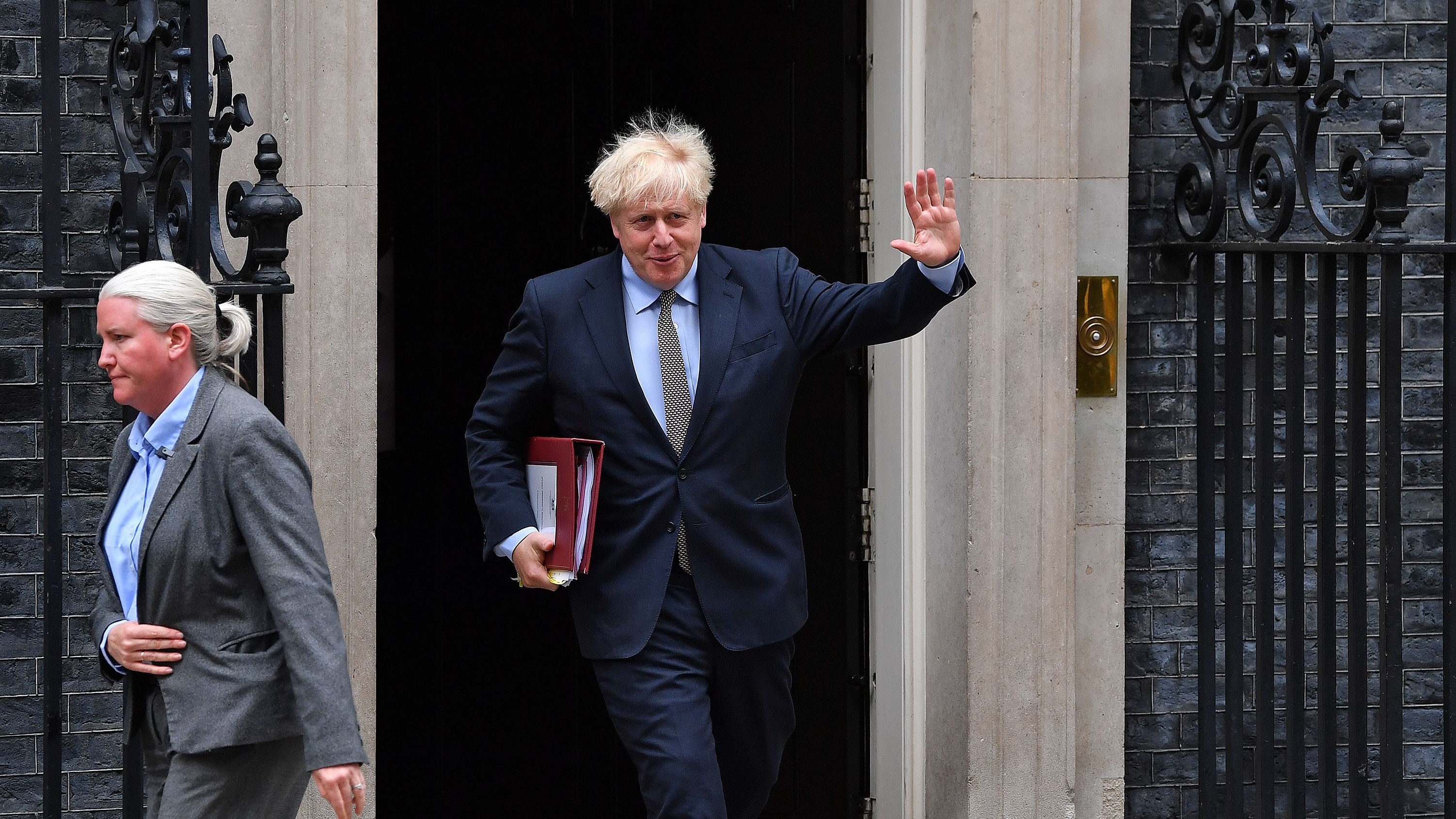How Boris Johnson headed off a Brexit rebellion
PM agrees compromise with Tory critics of controversial bill that will break international law

A free daily email with the biggest news stories of the day – and the best features from TheWeek.com
You are now subscribed
Your newsletter sign-up was successful
Downing Street has brokered a deal with Conservative MPs who balked at Boris Johnson’s plans to effectively break international law by overriding parts of the Brexit Withdrawal Agreement.
The prime minister has agreed to amend the UK Internal Market Bill to allow MPs a vote before the government could activate powers in the legislation to override the EU divorce deal - a move that “could stave off a possible rebellion over the issue”, says the BBC.
MPs are now gearing up to vote next week on the amendment, put forward by the Tory chair of the Justice Select Committee, MP Bob Neill, with the backing of former work and pensions secretary Damian Green.
The Week
Escape your echo chamber. Get the facts behind the news, plus analysis from multiple perspectives.

Sign up for The Week's Free Newsletters
From our morning news briefing to a weekly Good News Newsletter, get the best of The Week delivered directly to your inbox.
From our morning news briefing to a weekly Good News Newsletter, get the best of The Week delivered directly to your inbox.
In a joint statement with No. 10 last night, Green said: “Following talks, it is agreed that the parliamentary procedure suggested by some colleagues provides a clearer, more explicit democratic mandate for the use of these powers, and also provides more legal certainty.”
The compromise comes after 30 Conservative MPs, including former chancellor Sajid Javid and ex-attorney general Sir Geoffrey Cox, abstained from the first vote on the Internal Market Bill. A further two voted against the bill, while Scotland’s Advocate General Lord Keen and top legal civil servant Jonathan Jones have both resigned in protest against the PM’s Brexit plans.
Despite the opposition, however, “Johnson’s sizeable majority meant the UK internal market bill passed with a comfortable cushion of 77 votes on Monday night”, by 340 votes to 263, says The Guardian.
But Downing Street is eager to secure the support of the Tory rebels for a second amendment that sources say will narrow any judicial review timeframe to three months in order to prevent “endless litigation”, according to Politico’s London Playbook.
A free daily email with the biggest news stories of the day – and the best features from TheWeek.com
Over in Brussels, the reaction to the Tory pact has been mixed. An EU source told the Financial Times that Brussels would like Johnson to remove all of the offending powers from the bill, not “put them in an ‘emergency use only box that MPs can unseal at a moment’s notice”.
Others see it differently. “It is still in every EU nation’s interest to find an agreement,” a “senior EU27 source” told Politico, suggesting that the bloc’s negotiating team would be willing to “close one eye” in order to keep the prospect of a Brexit deal on the table.
Earlier this month, Johnson said that if a deal was not reached by the European Council meeting on 15 October, both sides should “move on” - meaning the UK would go on to trade with the bloc on international trading terms.
-
 Crisis in Cuba: a ‘golden opportunity’ for Washington?
Crisis in Cuba: a ‘golden opportunity’ for Washington?Talking Point The Trump administration is applying the pressure, and with Latin America swinging to the right, Havana is becoming more ‘politically isolated’
-
 5 thoroughly redacted cartoons about Pam Bondi protecting predators
5 thoroughly redacted cartoons about Pam Bondi protecting predatorsCartoons Artists take on the real victim, types of protection, and more
-
 Palestine Action and the trouble with defining terrorism
Palestine Action and the trouble with defining terrorismIn the Spotlight The issues with proscribing the group ‘became apparent as soon as the police began putting it into practice’
-
 Trump touts pledges at 1st Board of Peace meeting
Trump touts pledges at 1st Board of Peace meetingSpeed Read At the inaugural meeting, the president announced nine countries have agreed to pledge a combined $7 billion for a Gaza relief package
-
 Should the EU and UK join Trump’s board of peace?
Should the EU and UK join Trump’s board of peace?Today's Big Question After rushing to praise the initiative European leaders are now alarmed
-
 How corrupt is the UK?
How corrupt is the UK?The Explainer Decline in standards ‘risks becoming a defining feature of our political culture’ as Britain falls to lowest ever score on global index
-
 The high street: Britain’s next political battleground?
The high street: Britain’s next political battleground?In the Spotlight Mass closure of shops and influx of organised crime are fuelling voter anger, and offer an opening for Reform UK
-
 EU-Mercosur mega trade deal: 25 years in the making
EU-Mercosur mega trade deal: 25 years in the makingThe Explainer Despite opposition from France and Ireland among others, the ‘significant’ agreement with the South American bloc is set to finally go ahead
-
 Biggest political break-ups and make-ups of 2025
Biggest political break-ups and make-ups of 2025The Explainer From Trump and Musk to the UK and the EU, Christmas wouldn’t be Christmas without a round-up of the year’s relationship drama
-
 Who is paying for Europe’s €90bn Ukraine loan?
Who is paying for Europe’s €90bn Ukraine loan?Today’s Big Question Kyiv secures crucial funding but the EU ‘blinked’ at the chance to strike a bold blow against Russia
-
 ‘The menu’s other highlights smack of the surreal’
‘The menu’s other highlights smack of the surreal’Instant Opinion Opinion, comment and editorials of the day